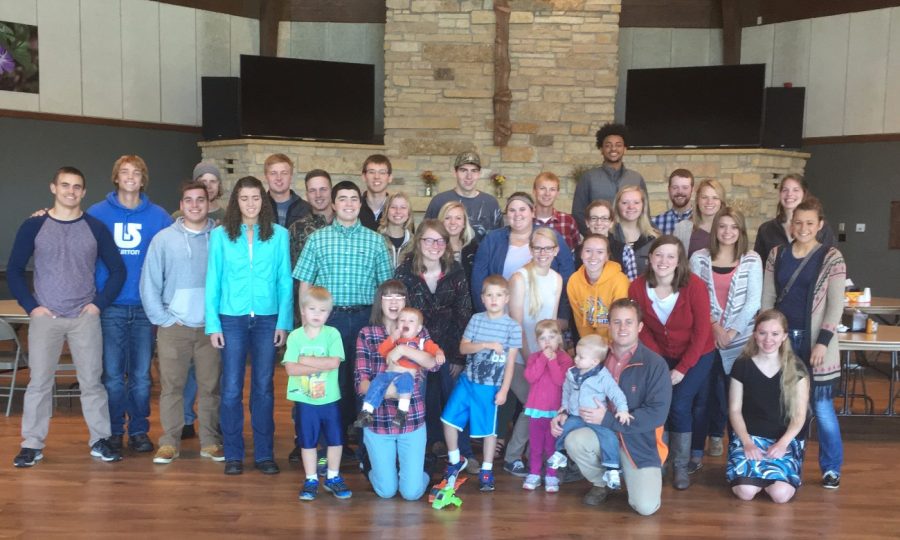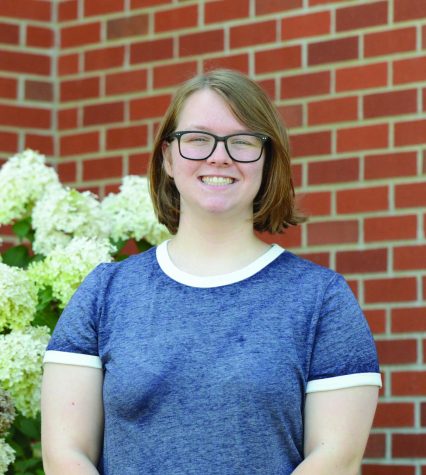What it takes to be a student religious group
September 16, 2020
With nearly 250 student organizations at South Dakota State University, religion-based organizations make up a fraction of that number with 14 currently active groups. Students may be curious how these organizations differ, what process they must go through to be recognized and what purpose they can serve on campus. So, the question is: how does a religious group become a recognized organization?
The current protocol for establishing a student organization on campus is nearly identical for religious and secular groups. The processes for applying or being recognized are the same according to Assistant Director of Student Activities Kate Stock.
“There’s no difference if a student wants to form an organization based on religion,” she said. “They go through the same process as every other student organization category that we have.”
To become a recognized organization, a group must follow the guidelines established by University Policy 3:10.
According to the policy, a group must have at least seven members and one campus advisor to be recognized as an official student organization. They must also comply with established protocols and guidelines by the Office of Student Activities and file an organization constitution outlining their policies for membership, finances, election of officers, meetings and several other topics.
After completing these steps—and some paperwork—the organization may then meet with the Organizational subcommittee of the Students’ Association (SA) and senior director of the Union to begin the recognition process.
Provided this process is completed and the organization is recognized by the college, the group must then re-register and provide any updated information to SA each spring.
Religious clubs are also not restricted due to their affiliations with off-campus entities, often a larger church or religious group.
“That would be the same as any student org that’s politically affiliated or affiliated with any sort of social group that’s a national organization,” Stock said. “There is no difference, and we don’t restrict what they can do in terms of programing and events.”
One difference between religious and non-religious organizations is their relationship to the nondiscrimination guidelines established by SDSU. Religious organizations are considered expressive associations, meaning they “are created for specific expressive purposes, and they would be significantly inhibited in advocating their desired viewpoints if they could not restrict their membership …,” according to University Policy 3:18.
While this means religious organizations are technically allowed to decide what group members they have, Luke Perkins, advisor for Equip Campus Ministries, one of the various religious groups on campus, says they encourage everyone to join, even those who may consider themselves non-religious.
Perkins explained that Equip has no stipulations when it comes to membership, apart from occasionally looking to leadership experience for certain roles. As he puts it, Christianity does not discriminate against backgrounds.
Apart from the exemption from the nondiscrimination rule, Equip and other religious organizations operate identically to other groups on campus in terms of help from the university and activities allowed. Perkins explained they can fundraise, put up posters and meet on campus like any other organization. They also follow the same rules of requesting funding, which involves speaking to SA, who allocate funds for different clubs and activities.
Perkins believes that allowing religious organizations on campus is important as it allows students to pursue their own interests freely, as well as experience worldviews different from their own.
“That’s supposed to be a big part of the university experience, that you would be challenged and interact with a bunch of things that you don’t believe,” he said.
He added that these groups can offer answers to the questions students may have about purpose and their beliefs.
“Religious groups offer an important place to explore those things that many students want and deeply need,” he said.






















